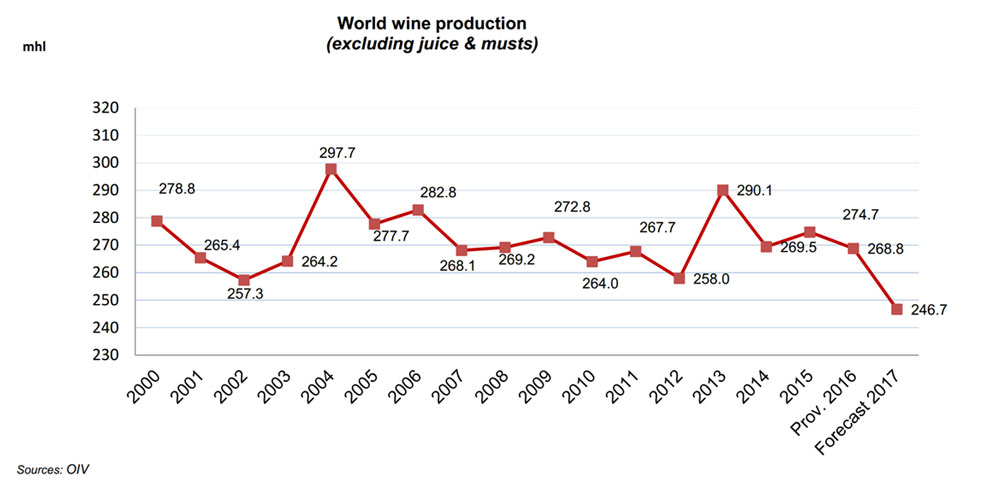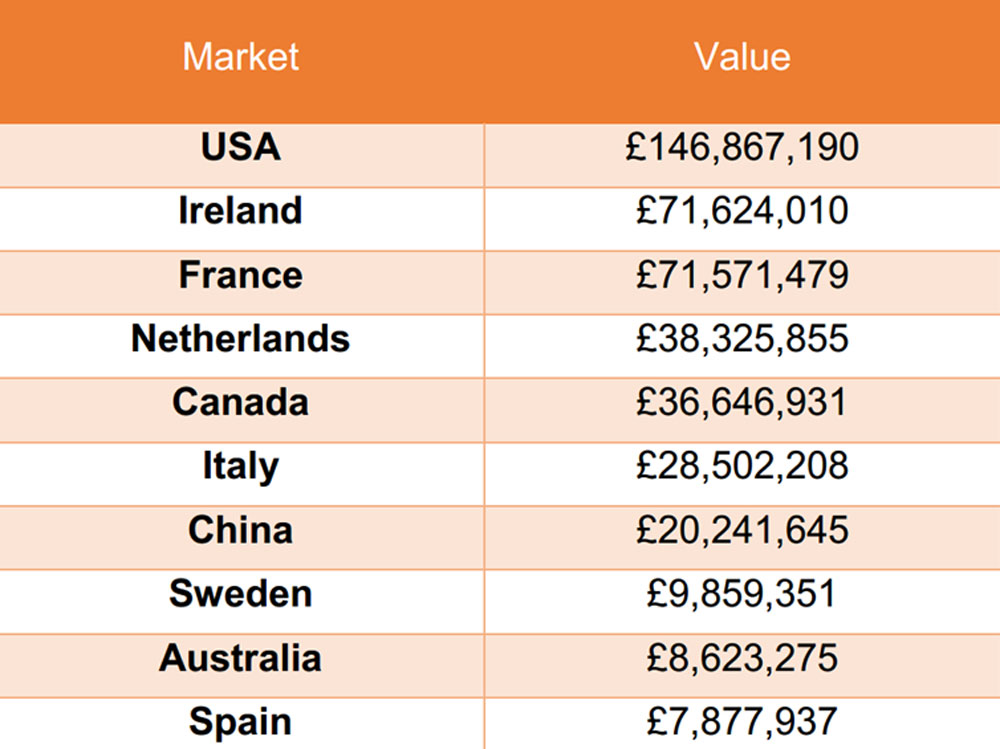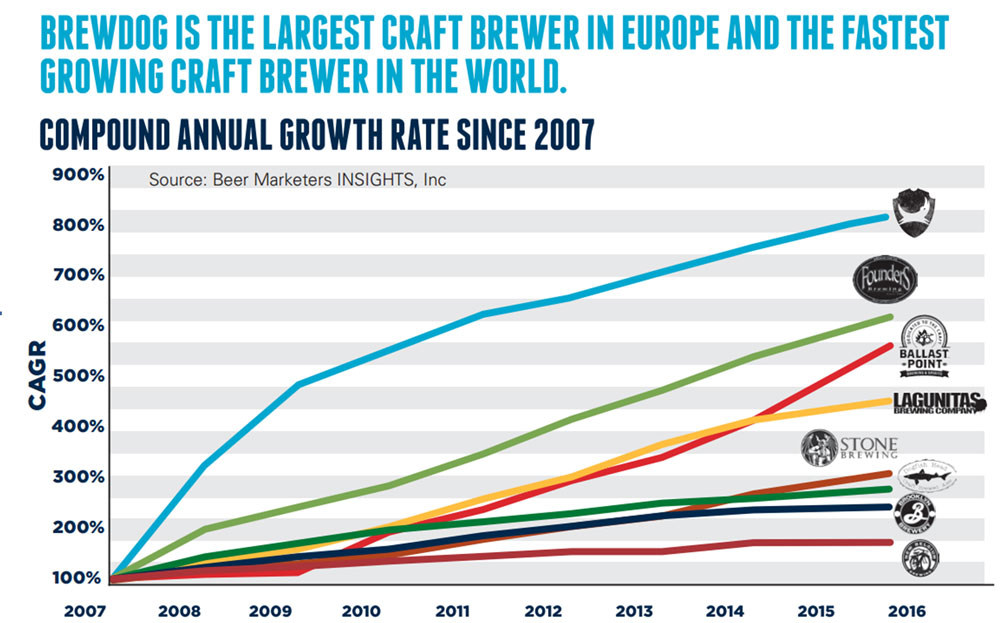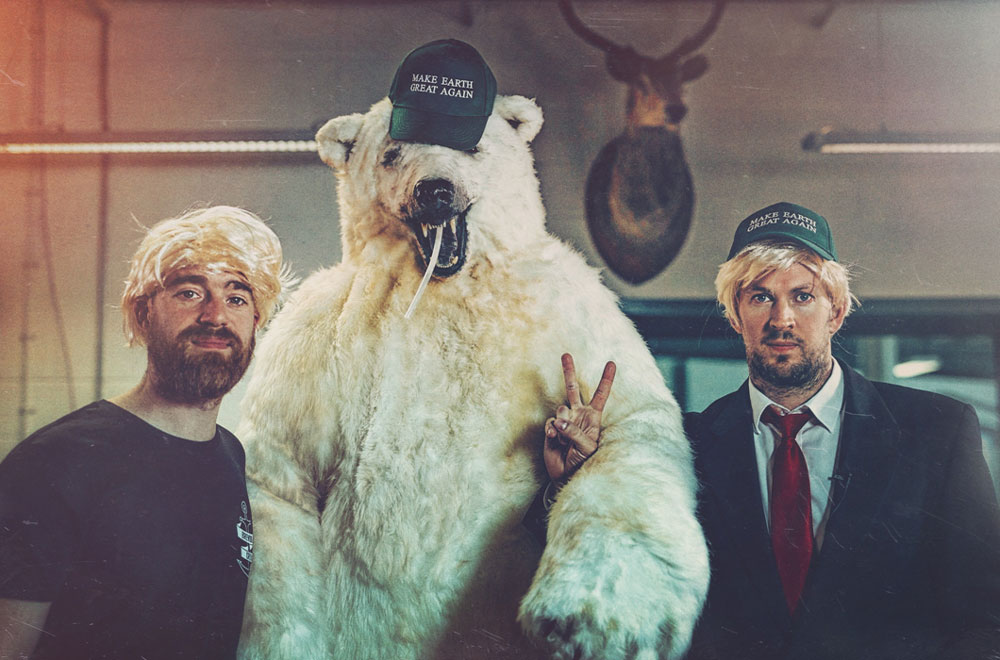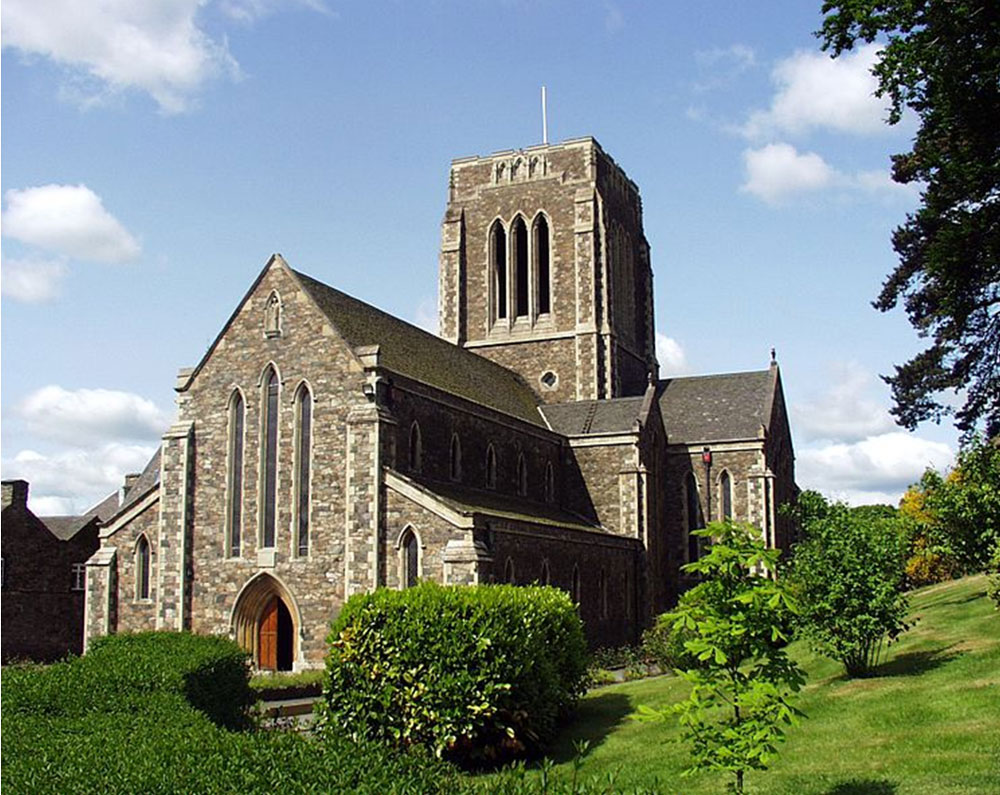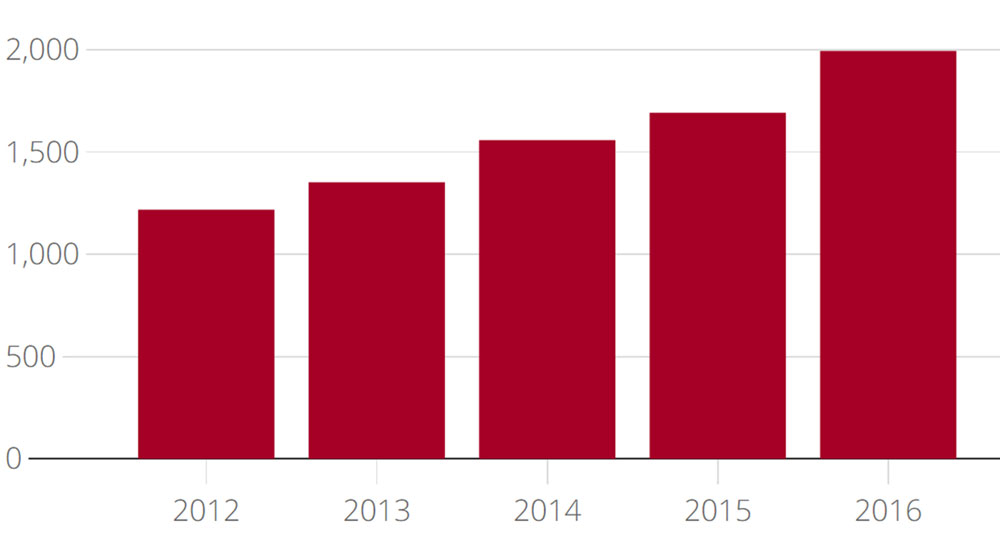Despite protests by the Scotch Whisky Association (SWA), the UK Supreme Court ruled on 15 November 2017 that Scotland can set a minimum price for alcohol.
Wine lovers had better stock up on their favourite tipple quickly as a slump in Europe’s wine production this year will likely lead to higher prices. Making matters worse is the Brexit-related hangover, which has weakened the currency and pushed up prices.
After Scotch Whisky and chocolate, beer is the largest food and drink export from the UK worth around GBP 600 million (USD 795 million) per year, the British Beer and Pub Association (BBPA) argues in a recent report.
Think of all the wonderful things you can do with money given freely. In October 2017 BrewDog launched its fifth round of crowdfunding. Since 2009, its previous four rounds have raised around GBP 41 million (USD 55 million), enlisting over 53,000 shareholders and making it one of the most successful investment crowdfunding offers of all time.
When it comes to politicising beer, BrewDog does not miss a beat. In time for the UN Climate Change Conference (6-17 November 2017) in the German city of Bonn, Scottish brewer BrewDog launched its latest protest beer, Make Earth Great Again – a beer it hopes will “shake the world by the shoulders” and remind leaders to prioritise climate change issues.
… and about time too. A court in the liberal city of Amsterdam took a decidedly illiberal attitude to these “rolling taps” and banned them in early November 2017. Invented by two Dutchmen, these beer bikes are carts that have been modified with seats arranged around a bar table. Patrons power the bike as they pedal beside the city's famous canals, while drinking beer.
Trappist monks at the Mount St Bernard Abbey in rural North West Leicestershire (that’s between Birmingham and Nottingham) have been given council approval to convert part of their 19th century Cistercian monastery into a fully operational brewery. England once boasted 54 Cistercian monasteries (called abbeys), but these were dissolved by Henry VIII in the late 1530s.
Research by the accountancy group UHY Hacker Young found there were 1,994 breweries in the UK at the end of 2016, up 18 percent from the 1,692 recorded at the end of 2015. This is the highest number since the 1930s.
Heineken NV, the world’s number two brewer, reported a 2.5 percent increase in third-quarter beer sales to 60 million hl on 26 October 2017, with growth in all regions except Europe, where cool summer weather reduced demand, and in the United States.
The world’s number one brewer reported unsatisfactory third-quarter results with beer volumes dropping 1.2 percent to 161 million hl. Shareholders will take some comfort from management’s announcement that cost savings from the USD 104 billion SABMiller acquisition will be USD 400 million higher than the originally estimated USD 2.8 billion. The USD 3.2 billion savings will be delivered within the same four-year period, which is by October 2020.

